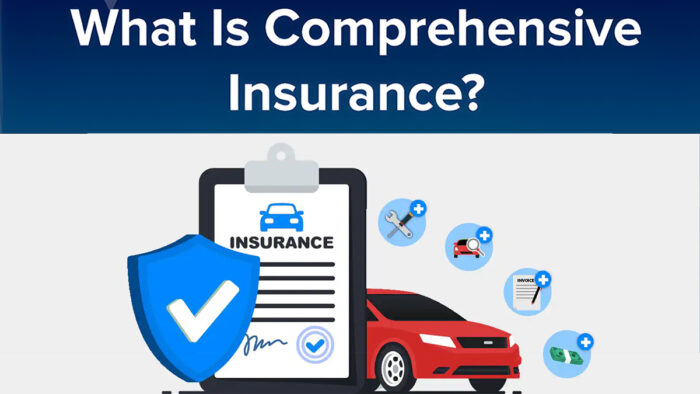Comprehensive insurance is a policy that covers repairs to damages caused to your vehicle by other events, except collisions. In other words, if you are involved in a collision accident, your policy will not cover the cost of any damages. It helps you cover irregular events that you are not in control of. However, there are still some events that will not be covered by this insurance policy. This is why, when you are purchasing a policy, it is advisable to get collision coverage as well. Besides, car insurance companies offer such quotes to car owners.

How Does It Work?
Just like other types of car insurance cover when you file a claim, comprehensive insurance works similarly. For instance, if you are in a situation where your car is damaged by hail or crushed by a tree, here is what you have to do and what will happen when you carry out the necessary procedure:
- Contact your insurance company immediately.
- Take down the details of the damages you notice.
- When you file a claim, repairs will be reimbursed.
- In addition to this, if you get roadside assistance, the car towing will be covered by your insurer.
- Then an adjuster will be sent by your auto insurer.
- They will check the car and prepare an estimate of the repair costs.
- You can either accept this estimate or not.
After you pick up your rental car, you can pick it up after the repair is complete.
What Does Comprehensive Insurance Cover?
With a comprehensive insurance quote, here are the coverage options that you can enjoy whenever you need to:
- Fire
- Hitting an animal
- Vandalism
- Tornadoes
- Falling objects
- Rodent damage
- Hurricanes
- Hailstorms
- Theft
- Floods
- Earthquakes
Apart from this, when you get this insurance policy and file a claim, it will pay out the maximum amount using ACV.
What Does It Not Cover?
Below are the situations or events it will not cover:
- Damages caused by a car flip.
- Collision with another vehicle.
- Injuries after an accident.
- Collision with a guardrail or a road hazard.
- Normal wear and tear.
- Personal belongings in your car.
- Damage from potholes.
So, any damage caused by potholes in the road is not covered.
How Much Does an Average Comprehensive Insurance Cost?
The average cost of comprehensive insurance in the United States of America is around $1,539 per year. However, this does not mean that this is a fixed price. In other words, there are many factors involved in determining the cost of this insurance policy. They include;
- Coverage limit
- Deductible
- State
- Vehicle
- Age
- Driving record
- Gender
- Credit history
- Continuous insurance
- Policy type
- Marital status
- Occupation
- Safety features
- Smoking
- Insurance history
- Mileage
- Discounts
Do I Need Comprehensive Insurance?
When you are planning to get a new car insurance policy, it is advisable to include comprehensive insurance in it. This policy or decision will favor you if the value of your car is high or if you have a new car. However, remember that comprehensive and collision insurance do not offer coverage for the value of your car.
How to Get Comprehensive Insurance
If you are finding it hard to get a comprehensive insurance policy, especially since it is your first time doing so, do not worry. Although it is not in your hands to determine the cost of purchasing one, there are some things you can do to help yourself.
- Shop around.
- Start searching for a comprehensive insurance policy early.
- Ask for discounts.
- Take part in a telematics program.
- Work on keeping your driving record clean.
- Put your vehicle into consideration.
- Set a practical expectation.
- Prepare the required documents for applying.
- Go to the insurance company’s official website or visit them physically.
- Fill out the application form.
- Provide the necessary information and documents.
- Once you are done, submit it and wait for it to be reviewed.
After the insurer or insurance company checks and analyzes your application and you are qualified, you will be approved and can start making payments for premiums.
Not every driver has the ability to get a nice deal when purchasing insurance. But you can still try to get the coverage you need.
Where to Find Comprehensive Insurance
Many auto insurance companies offer comprehensive insurance coverage, which car owners can purchase and add to their policy. Luckily for you, I have put together a list showing the best companies to check out:
- Farmers Insurance
- Geico
- USAA
- Nationwide
- Allstate
- AAA
- Progressive
- American Family Insurance
- Liberty Mutual
- Amica
- Erie Insurance
- State Farm
- Auto-Owners
- NJM
- Safeco
If you would like to learn more and gather more information on these comprehensive insurance providers, you can check out their official website.



